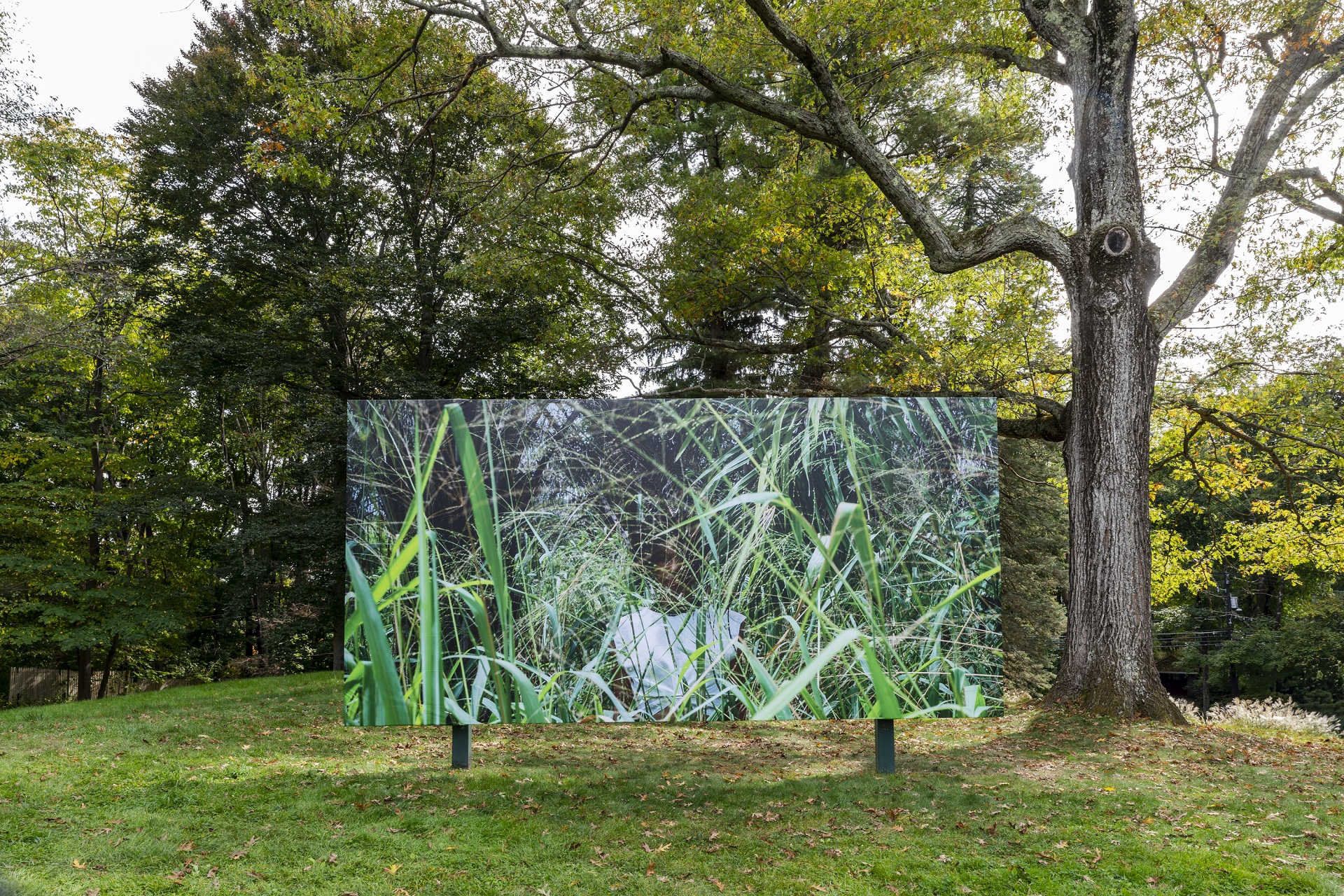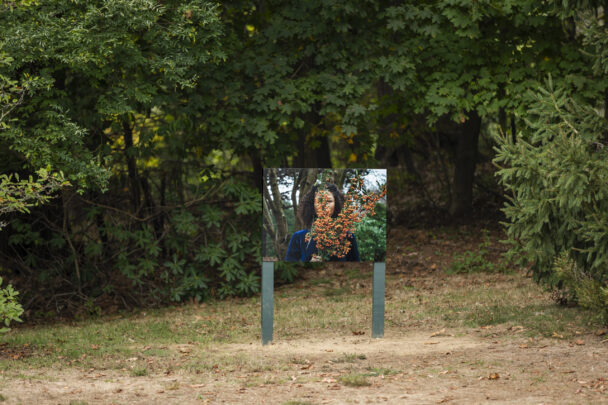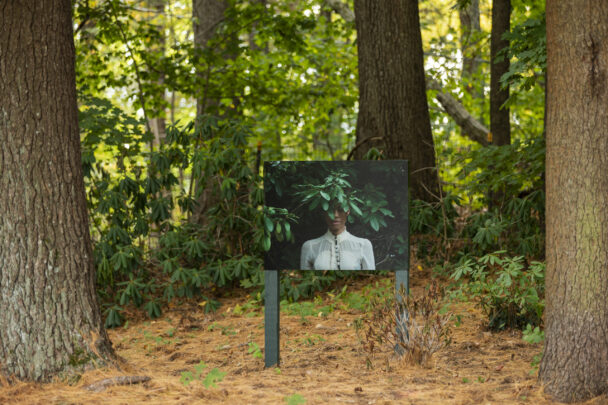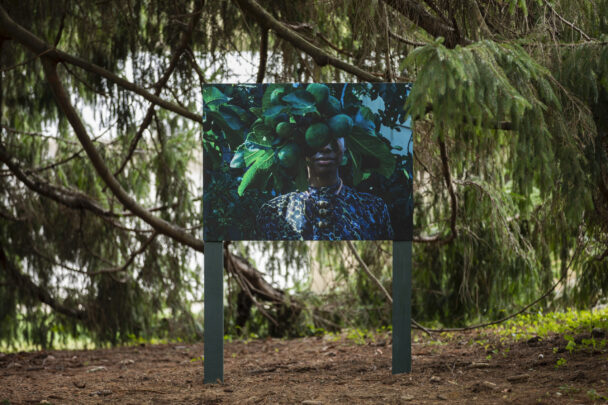Zohra Opoku works primarily with textiles, photography, and printmaking to explore themes of identity and self-fashioning, particularly in connection to her Ghanian culture. Opoku grew up in East Germany before traveling to and eventually permanently moving to Ghana, her father’s home country, in 2003. Opoku’s artistry marries her search for belonging with a desire for camouflage, noting: “When traveling to London for the first time, I felt like I could just disappear. I think that’s where I started to realize that what was missing for me in my upbringing was a connection to my African background. It is always the driving force, this question of identity. How can I relate to the place I’m dealing with? How do I connect? What is familiar? And what do I have to bring to reconnect to the new environment?”¹
Shown on a large-scale billboard and five smaller signs throughout deCordova’s Sculpture Park, Opoku’s Self-Portraits present the artist posed with her face partially covered by different plants. Opoku describes how the project started: “I was at an artist residency in Berkeley at the Kala Institute, and I ended up having more conversations with the landscapes around there and looking at myself. I was very intrigued by the fact that most of the plants are actually not from that area. They were immigrants, like me. Plants from Middle Europe to the Mediterranean to desert to grassland. There’s this wide range. It was impressive to me how everything could grow in California. And since I have a very strong background of farming and being in nature—my father was also very strongly connected to greenery—nature really represents home to me.”¹ Opoku continued this body of work in Germany and Accra, Ghana. Shown here, visitors discover Opoku’s photographs immersed and protected within deCordova’s varied environment of native and non-native plants. The title of the largest billboard image, Sassa, refers to a spirit connected to Asante religion and culture. In this composition Opoku disappears almost fully into nature.
¹Zohra Opoku’s Evocative Reflections on Mortality and Resilience (aperture.org)
About Zohra Opoku
Zohra Opoku was born in 1976 in Altdöbern (former GDR/ East Germany), lives and works in Accra, Ghana. She has shown at major internationally arts venues including at the 15th edition of Sharjah Biennale, United Arab Emirates, as a Black Rock Sénégal Alumni at 14th edition of DAK’ART in 2022 and at the 7th Athens Biennale ‘Eclipse’ in Greece in 2021. She has exhibited widely in museums including at the Brooklyn Museum, Brooklyn, NY; The Museum for Photography, Chicago; The Cleveland Museum of Art, Kunsthaus Hamburg, Guggenheim Museum, Bilbao, Palais Populaire, Berlin, and Centre for Contemporary Art Lagos. Her work is in the collections of the Centre Pompidou, Paris, France; CCS Bard College Hessel Museum of Art, Annandale-on-Hudson, NY; Los Angeles County Museum of Art, Los Angeles; The Royal Museum of Ontario Toronto, Ontario; TATE Modern, London, United Kingdom, among others.
About PLATFORM
PLATFORMS are one-person commissioned projects by early- and mid-career artists from New England, national, and international art communities that engage with our museum’s unique landscapes. The PLATFORM series lets artists expand their practice and visitors experience new approaches to contemporary sculpture and public art.



